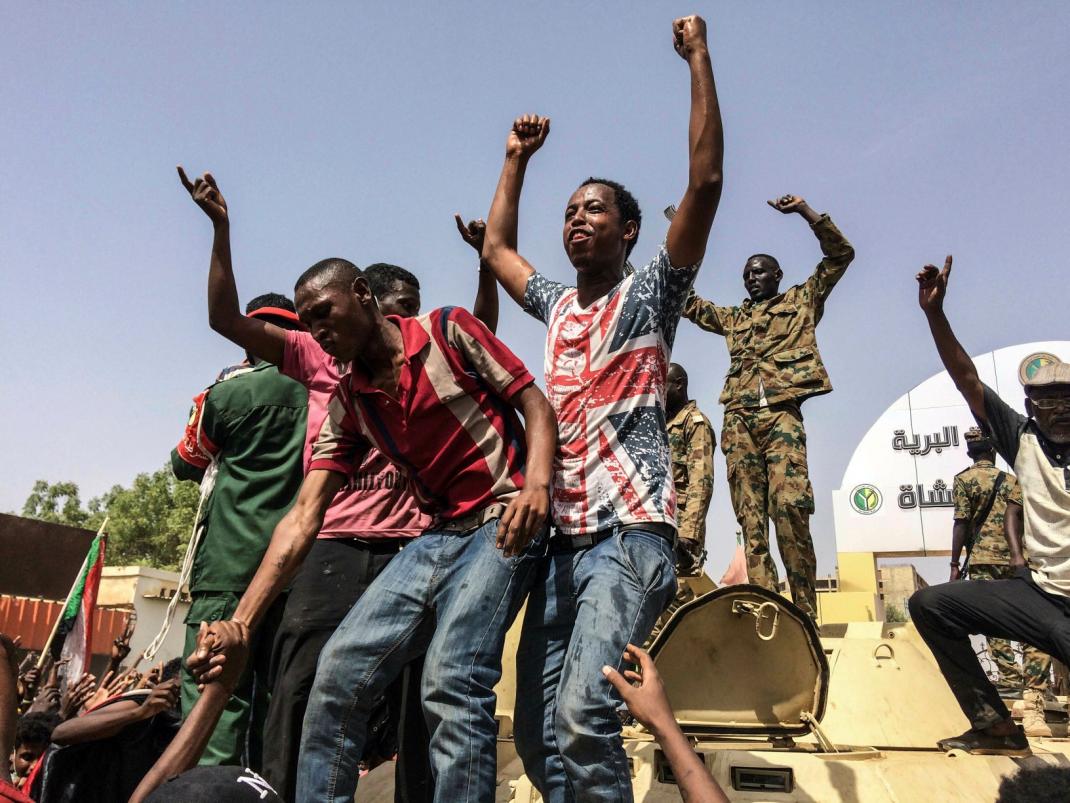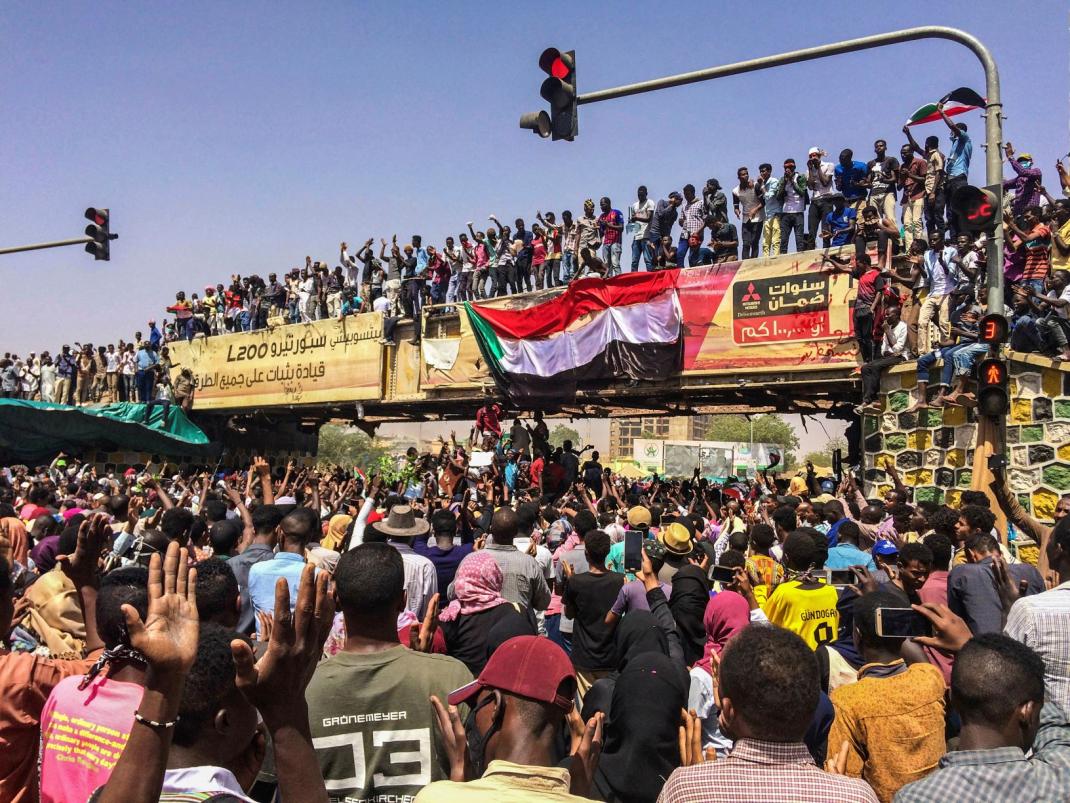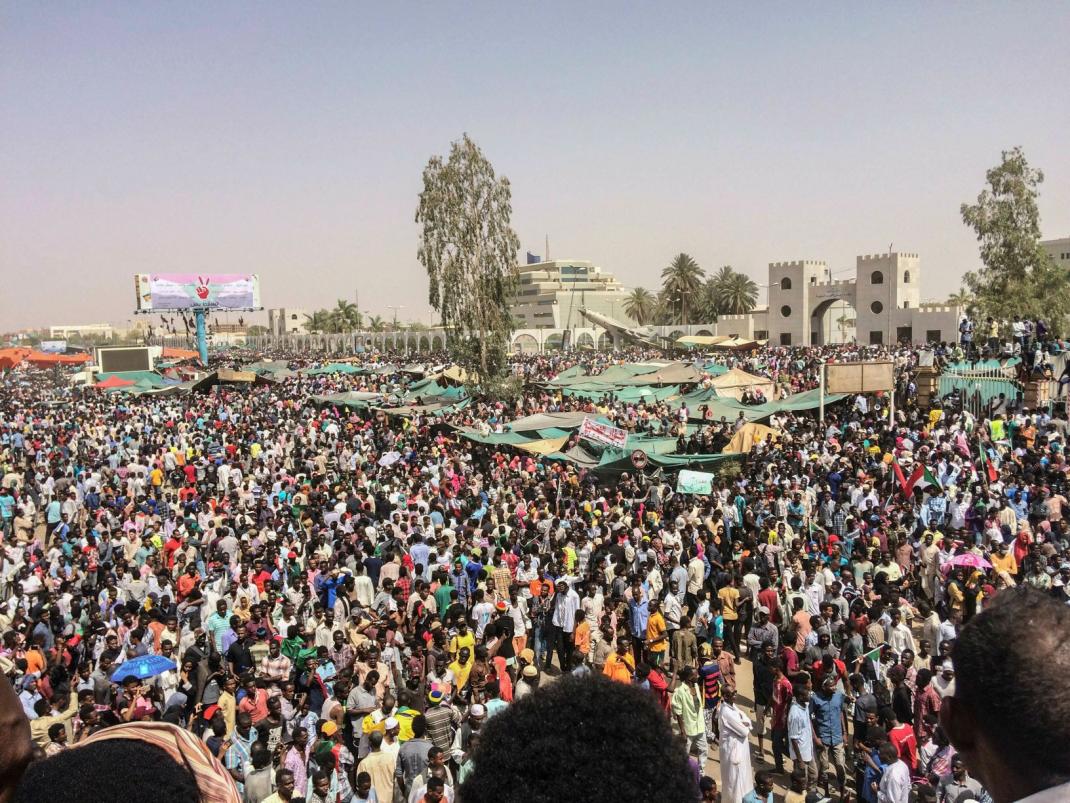(Nairobi) – The end of Omar al-Bashir’s 30-year rule provides a momentous opportunity for Sudan to put respect for human rights and rule of law at the center of its transition, Human Rights Watch said today. Sudan’s authorities should heed the peaceful protesters who for months have been calling for “freedom, peace, and justice” and immediately introduce reforms to help end decades of abuse and to protect human rights and the rule of law.
On April 11, 2019, Sudan’s vice president and defense minister, Awad Ibn Ouf, dissolved Sudan’s government, suspended its constitution, and announced that a military council would take over for a two-year transitional period. He also announced that all “political detainees” would be released, and that Sudan would remain committed to all regional and international agreements.
“This significant development reinforces the authorities’ obligation to address egregious human rights abuses suffered by so many Sudanese over the last three decades,” said Jehanne Henry, associate Africa director at Human Rights Watch. “Al-Bashir’s ouster is a testament to the tenacity of the protesters, who remained in the streets despite the government’s violent repression.”

Sudanese celebrate after officials said the military had forced longtime autocratic President Omar al-Bashir to step down after 30 years in power in Khartoum, Sudan, Thursday, April 11, 2019. © 2019 AP Images
Al-Bashir’s current whereabouts have not been made public. Ibn Ouf said that al-Bashir is under arrest and in a safe place. Authorities should also carry out the two International Criminal Court arrest warrants against al-Bashir for grave crimes in Darfur, as well as the warrant for Ahmed Haroun, acting head of the long-ruling National Congress Party, who is also wanted by the ICC for crimes in Darfur.
Since April 6, thousands of protesters have held sit-ins at the Sudan army general command in Khartoum. Government forces cracked down on the protesters, killing dozens. Sudan Doctors’ Central Committee, an opposition group, said that at least 26 protesters were killed. Media reports said clashes took place between soldiers from the armed forces and other security forces, as some army soldiers sought to protect protesters.
On the morning of April 11, military vehicles and troops were deployed in multiple locations around the city, including National Congress Party offices and the homes of senior government officials and al-Bashir’s family. Opposition groups including the Sudanese Professionals Association (SPA), which has been at the forefront of the protests, insist that the military should hand over power to a civilian transitional government.
Witnesses in Khartoum told Human Rights Watch that on April 11, they saw protesters surround the national security complex in Bahri, Khartoum, and watched detainees being released. The overall number of detainees released is still unknown.
Ibn Ouf is among the Sudanese officials under sanction by the United States government for his role as head of military intelligence in commanding attacks on civilians in Darfur. With the situation still in flux and extremely tense, other governments and international entities including the United Nations and African Union should also press for full respect for the basic rights of Sudanese people.
Protests have taken place in major Sudanese cities since December 2018, both in response to Sudan’s declining economy and for an end to al-Bashir’s rule. Sudanese security forces cracked down violently on those protests, killing scores of protesters and rounding up hundreds, possibly thousands, for arrest and detention. Human Rights Watch has long documented grave human rights violations and potential war crimes in Darfur, Southern Kordofan, and Blue Nile, as well as patterns of repression across the country, including killing protesters.

Al-Bashir is facing charges of genocide, crimes against humanity, and war crimes at the ICC based on attacks against civilians in Darfur dating back to 2002. On March 31, 2005, the United Nations Security Council mandated the ICC prosecutor to conduct an investigation there.
“The release of detainees in Khartoum is a necessary start, but Sudan’s leaders need to ensure that all those wrongfully detained are released and that the rights of the Sudanese people to protest peacefully are fully respected,” Henry said. “They should also hand al-Bashir and the others facing ICC international arrest warrants over to the court at once as victims of the gravest crimes in Darfur should not have to wait any longer for justice.”
(HRW)
